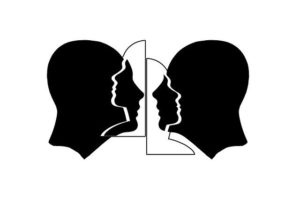The Road Less Traveled – Learning as a Positive Determinant of Mental Health`
Author: Allison A. Sakara, NP, MSN, RN, PHRN
“No matter what is happening in life or in the world – war, natural disaster, poor health, pain, the death of loved ones – if existence is filled with art, music and literature, life will be fulfilling, a joy.”
-Karen DeCrow
Signed into law in 2020, the National Suicide Hotline Designation Act authorized 988 as the new three-digit number for the National Suicide Prevention Lifeline and became available as a national resource in July 2022. With this increased awareness and renewed support, mental health as a determinant of health is finally taking its place alongside other critical determinants of health (DoH). Mental health as a DoH spans the range from individual to family/tribe, group to community, and regional to global. Yet attention and research into the factors that contribute to mental health, emotional resilience, and neurological potentials for mental health injury have concentrated on factors with a negative impact. Violence, crime, and exposure to warfare are ever present in the determinants of health conversation. Factors beneficial to mental health, like fostering empathy and instilling neuroresilience, receive far less recognition.
Fostering Empathy Through Shared Learning Experiences
Empathy is often defined as “feeling through another person’s experience”. This definition is key to understanding why empathy is a DoH factor for mental health and the impact of mental health challenges. Empathy is our capacity to anticipate the emotional impact of our actions on others. Many personality disorders include the impairment or even lack of empathy as a symptom or characteristic. This correlates with greater degrees of antisocial behavior, criminality, depression, violent behavior, aggression, homicide, and suicide. In short, a lack of empathy correlates with factors that negatively impact individual and societal mental health.
Unlike many emotions, empathy can be learned and fostered. Research shows that the greater the diversity of fine arts, music, cultural, language and physical education, the greater the ability of individuals to feel and express empathy. The environment in which diverse education is delivered further impacts the ability to learn empathy. Group, aggregate, and team learning environments – online or in-person – not only foster the development of empathy as a skill but the degree to which it may be conveyed.
Empathy is also fostered by practice. The more empathy one chooses to experience today, the greater the degree and ease of expressing and experiencing empathy in the future. For example, the benefits of empathy as a skill are central to the field of disaster behavioral health (DBH). All of the major DBH interventions employ empathy as a means of connecting or reconnecting impacted individuals with providers and their communities in the wake of natural and man-made disasters.
STEAM Education as a Model for Instilling Neuroresilience
STEAM programs fill an important gap in education. The STEAM acronym stands for Science, Technology, Engineering, Arts, and Mathematics. These programs combine the 5 subject areas known to increase critical thinking and problem-solving skills through unique hands-on learning opportunities. Students participating in STEAM classes prepare for successful futures through exposure to left-brain or didactic skills, as well as right-brain or creative skills. Didactic skills are developed through science, technology, engineering, and mathematical activities. Creative skills are fostered through art, music, language, and physical education. Together, didactic and creative studies broaden the scope of learning and creativity, further serving to lay a solid foundation for neuroresilience.
Studies of neurorehabilitation following traumatic brain injury, stroke, intracranial bleeding, aphasia, and other neurological injury have demonstrated time and again that neuro resilience is influenced by prior learning. People with literature, language, music, fine arts, and/or athletic training (right-brain skills) plus science, math, and/or logic training (left-brain skills) recover faster and to a greater degree than those with less comprehensive educational experiences. Many experts believe that a more comprehensive educational history allows the brain in recovery to recruit previously trained neural pathways to replace damaged pathways.
New STEAM programs based on neurocognitive training technologies support recovery following adversity, regardless of the cause. In addition, such programs and related technologies may provide pathways to recovery for survivors of neurological injury, regardless of baseline – neurotypical, neurodiverse or special needs. The diverse educational nature of STEAM programs fosters empathy learning. When these programs are delivered in group or aggregate settings, online or in-person, the empathy learning is augmented. Thus, STEAM education is not only an educational DoH but a determinant of mental health and emotional resilience.
Determinants of mental health can be positive or negative, private or societal, natural or man-made. Bearing in mind the All Hazards/One Health/One Framework paradigm, however, the fostering of empathy and the application of technology aimed at promoting neuro resilience can mitigate the impact of many factors. Further, this same skill set can provide additional avenues to support mental health and recovery from neurological insults for persons of all ages.










